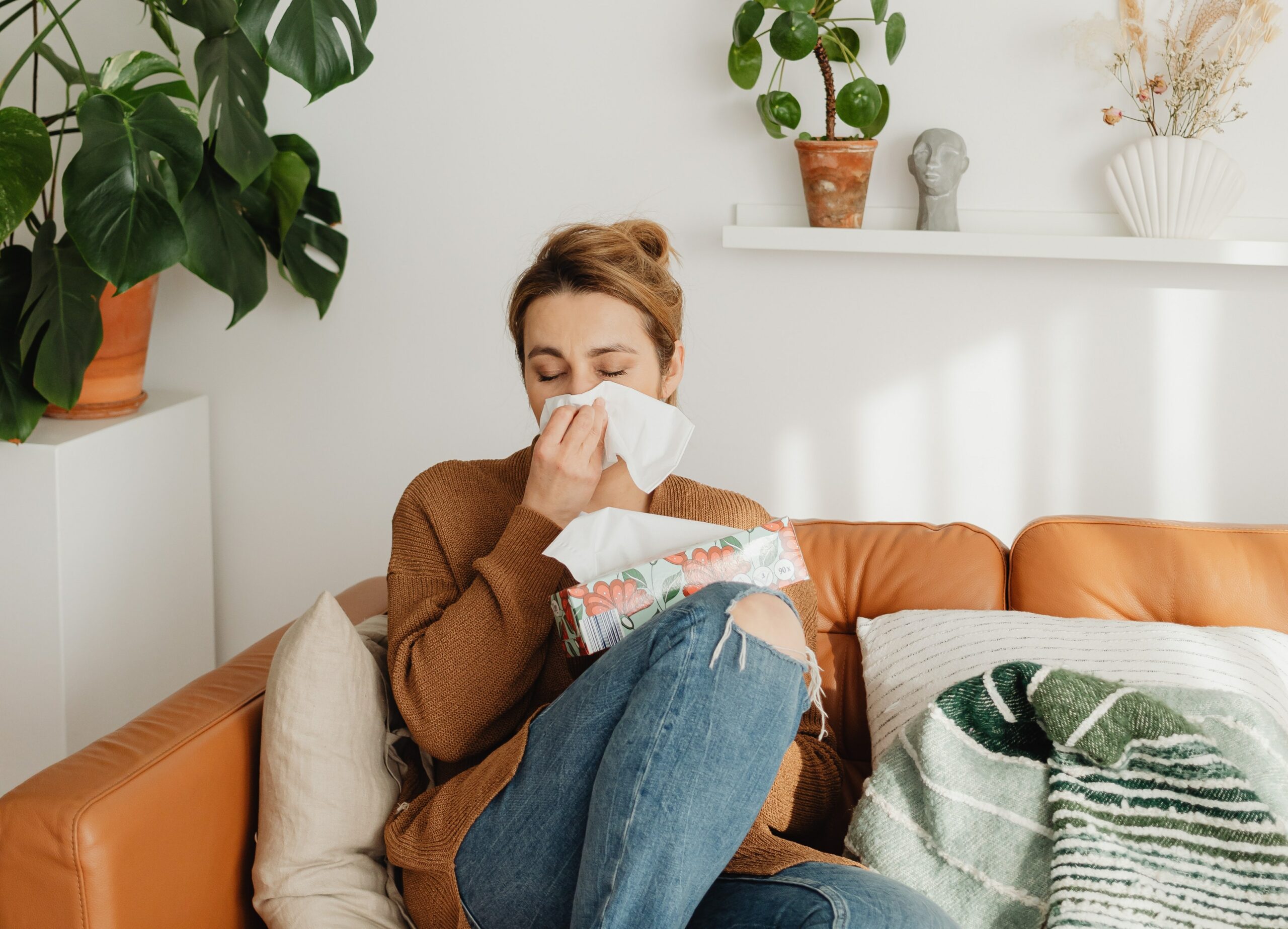Also known as ‘seasonal allergic rhinitis’, 25 percent of the population suffer from hay fever to some degree and those of you that do will be aware that this year has felt particularly bad. Hopefully, we will answer some questions as to what it is and why you suffer from it as well as suggest some ways to avoid or lessen your symptoms. We will aim to outline the more conventional treatment options and touch upon others that you may be aware of.
What is hay fever?
This occurs when the body’s immune system incorrectly recognises pollen as a threat and triggers a cascade of immune reactions, including the release of histamine, resulting in well-known symptoms. The pollen is known as an ‘allergen’.
It typically takes a few years to develop hay fever, so in children under 2 years old, it is unusual, and the symptoms peak in early adulthood and may get better in later life. It is rare to develop symptoms as an older adult.
What are the symptoms of hay fever?
People suffer to varying degrees and for different lengths of time in the pollen season. Those with more severe diseases have affected sleep which leads to impaired performance at school or the office.
The typical symptoms of hay fever are:
- Runny nose
- Itchy eyes
- Sneezing
- Itchy palate (throat)
- Cough
- Fatigue & irritability.
Why do I have it?
The causes are multifactorial. There is definitely a significant genetic element to hay fever, so your parents may well have suffered from allergies to a certain extent. Other potential triggers are:
- Born during the pollen season
- Male sex
- Firstborn
- Early use of antibiotics
- Maternal smoking exposure in early life.
What exactly am I allergic to?
Different allergens affect different people. Those who suffer from hay fever suffer from allergies to grass, weed or tree pollen (seeds). What exactly you are allergic to will determine when you are most likely to suffer from allergies.
Can I check to see what I am allergic to?
Yes. Both skin prick testing and blood tests are an option. You may be allergic to just one particular allergen or multiple.
Skin prick testing is very accurate. However, it can be harder to access and requires an allergy specialist. You will need to stop all antihistamines for about 4 days prior to the test.
Often a simple blood test can determine the most likely trigger for your allergies. This may well help you understand your condition and give you some opportunity to reduce your exposure, reduce the amount of medication you’re taking to manage symptoms and, importantly give you an opportunity to consider immunotherapy (more later).
There is a small group of patients who are allergic but who have negative allergy tests (skin prick or blood test). This is due to a very local allergy response within the nose. (local allergic rhinitis).
Interestingly not everyone who is ‘allergic’ to a particular allergen in a blood test develops symptoms when they are exposed to it (false positive).
Are my symptoms definitely allergic?
In short, no; not all people with seasonal symptoms of rhinitis (typical hay fever symptoms) have symptoms triggered by allergies. For some, it is simply a change in weather or temperature that triggers the symptoms (non-allergic rhinitis).
Why is it so bad this year?
Various factors affect the amount of pollen in the air. The climate is a key factor- a dry, warm and slightly windy spring is especially bad news for hay fever sufferers. Many will be aware also that long grasses worsen the conditions too and of late there has been a tendency from many councils to allow grasses to grow for biodiversity reasons. Hay fever sufferers out there may not thank them for that!
Associated conditions
Those who are allergic to pollens are more likely to suffer from other conditions, especially:
- Asthma: 50% of asthmatics have seasonal rhinitis (hay fever).
- Eczema (atopic dermatitis): Thickened, itchy patches;
How can I help my symptoms?
You have two strategies if you suffer from hay fever.
1. Allergen avoidance
Clearly, if you can avoid the very thing that makes your symptoms worse, then things will be easier. Controlling one’s environment isn’t always straightforward or necessarily realistic.
Several things you can do to avoid pollen, however:
- Closing windows at home and in the car when the pollen count is high.
- Staying indoors when the pollen count is high.
- Washing hair before bed- this will remove pollen in the hair and avoid you from transferring it onto the pillow.
- Avoid drying washing outside when the pollen count is high.
2. Medication
- Oral antihistamines. There are many brands and types however, broadly, they are either sedating or less sedating. Many people find over-the-counter anti-histamines are adequate. If you are still struggling, then you can get more powerful anti-histamines on prescription.*
- Nasal anti-histamines. An alternative to oral anti-histamines.
- Nasal steroids. If anti-histamines are not settling things then you may wish to trial a nasal steroid spray.
- Anti-histamine eye drops.
*Tip: It’s best to take oral anti-histamine medication well before leaving home so that it’s had a chance to work rather than taking it just as you go out when it won’t have had time to be effective.
What about the steroid injection?
We are often asked about this. A high dose steroid is given deep into a muscle as an injection, and over 6-8 weeks, the steroid enters the bloodstream reducing the inflammation triggered by pollen. While for many, this is a great initial outcome, there are concerns associated with this and as a result, it isn’t recommended unless all other treatments have failed. Obviously, once the steroid is given, it cannot be removed if there is a problem. Significant side effects include:
- Weak bones (osteoporosis) resulting from multiple injections.
- Susceptibility to infection
- Insomnia
- Raised blood pressure
- Muscle weakness.
Can I take oral steroids?
From time to time, if symptoms are especially bad, a short course of oral steroids may be prescribed. This is different to the injection as the total steroid dose is lower and can be stopped at any point. Continuing oral steroids for more than a few days would not be advisable for the same reasons as having the injection.
What about immunotherapy and other treatments?
For certain allergens, there is the option of desensitisation therapy (immunotherapy). A tablet/drop containing a specific allergen is placed under the tongue. It is generally an option for only those who are allergic to one particular allergen. The therapy is long-term and requires commitment. It is initiated 3 -4 months before the pollen season and carried on throughout the season, although it can be taken for 3 years without a break and, if done so, does confer some lasting effect on reducing that particular allergy. The main side effects are throat or ear itching and swelling around the mouth. For pollen, immunotherapy is considered to be as effective as nasal steroid sprays and slightly more effective than antihistamines, so it’s not a panacea, sadly.
If you suffer from hay fever, there’s a lot we can do to help. To find out about testing and discuss hay fever treatment options, book an appointment or call the surgery on 0207 245 9333.




